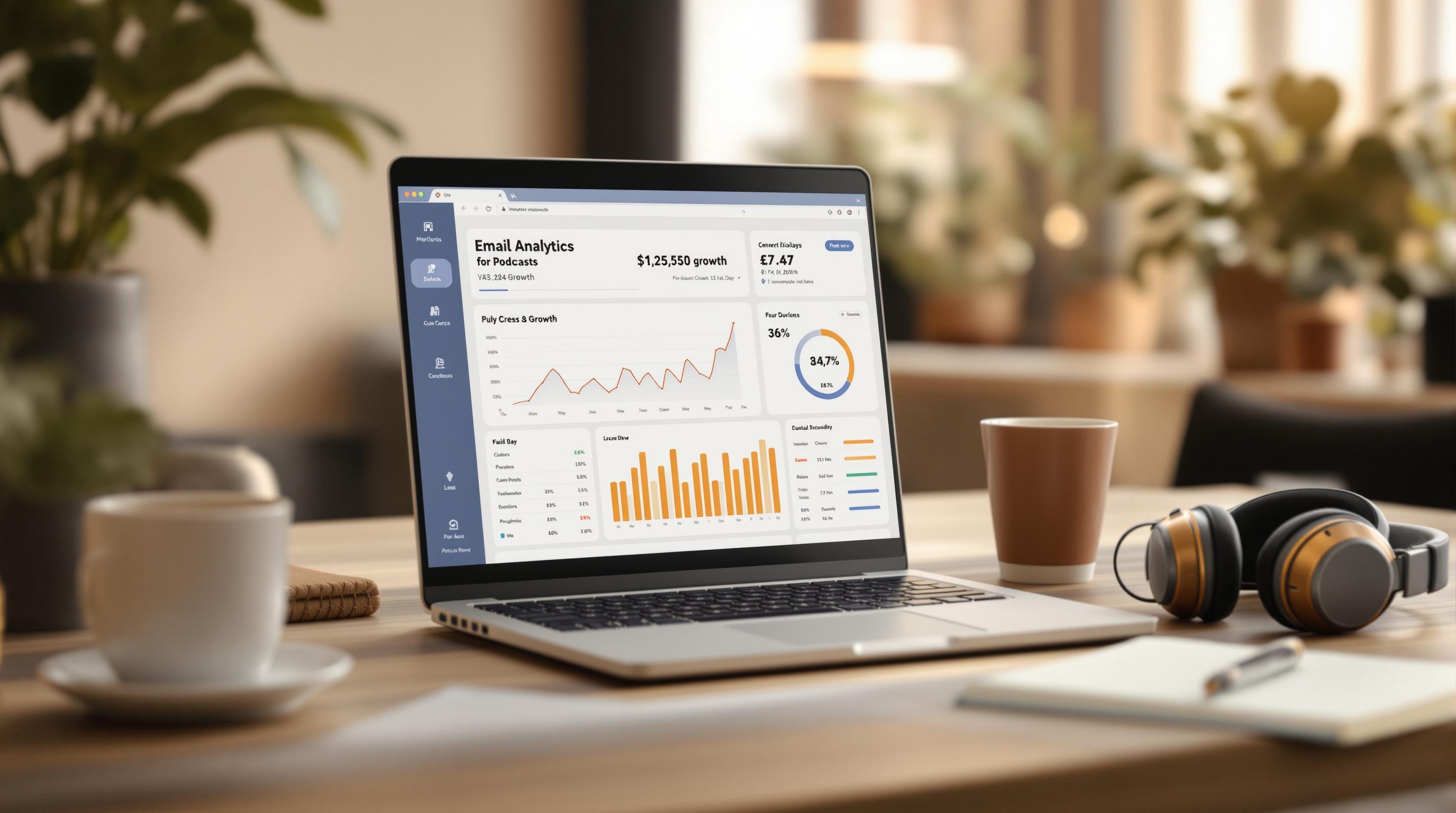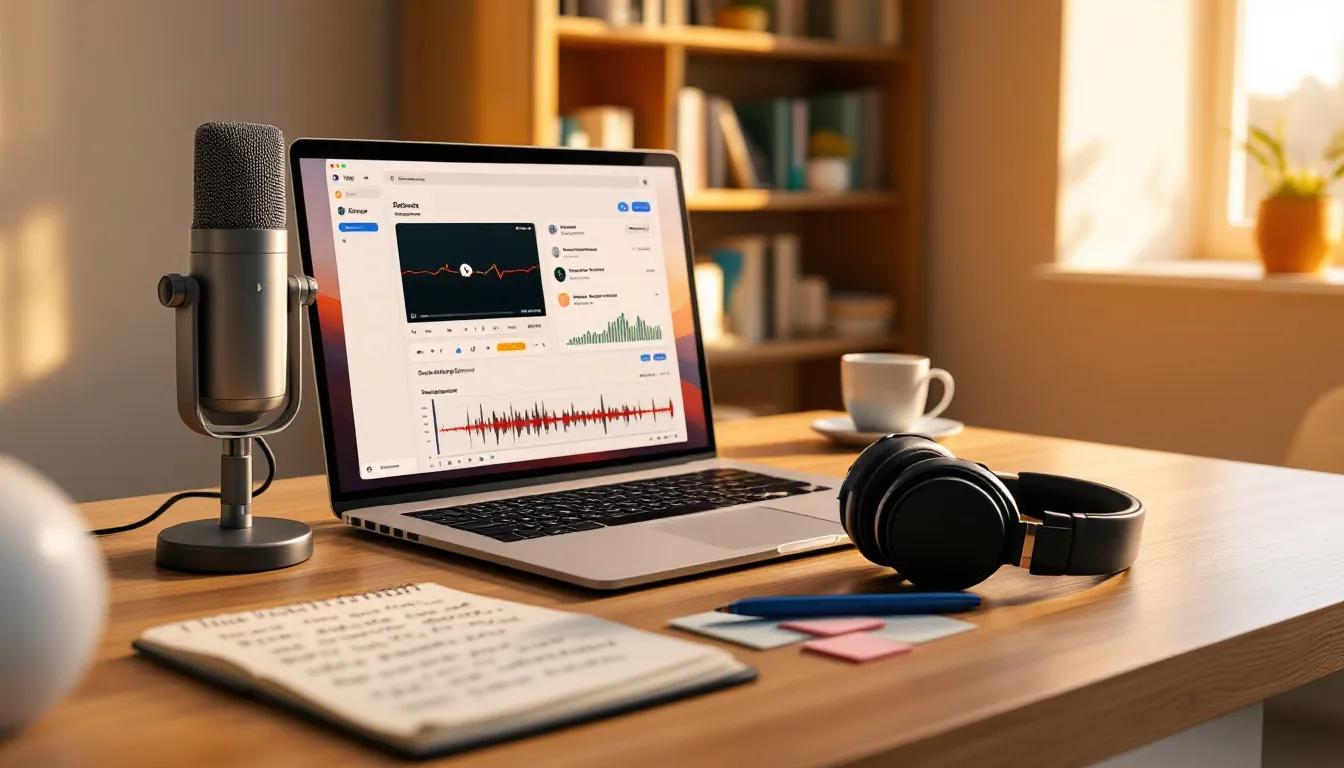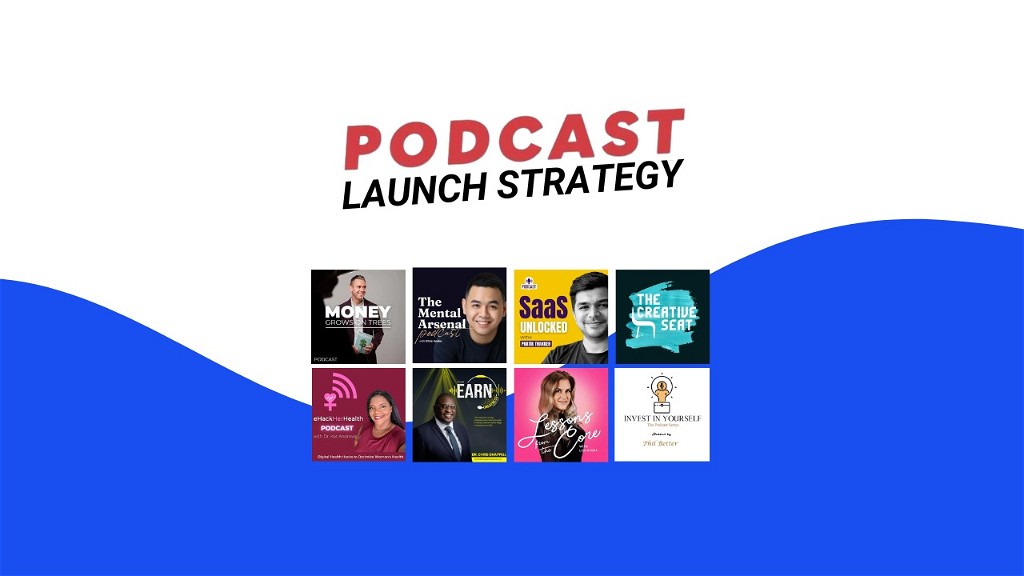Want to boost your podcast's reach? Here's how to nail podcast SEO:
- Optimize metadata
- Create searchable content
- Use transcripts and show notes
- Build a podcast website
- Spread your podcast
- Get backlinks
- Track your progress
| SEO Element | Why It Matters |
|---|---|
| Metadata | Helps search engines understand your content |
| Searchable content | Makes your podcast easier to find |
| Transcripts | Improves accessibility and indexing |
| Website | Grows your online presence |
| Distribution | Increases visibility across platforms |
| Backlinks | Boosts credibility and rankings |
| Analytics | Lets you improve based on data |
Podcast SEO isn't just about Google. It's about standing out on Spotify, Apple Podcasts, and other platforms too. With millions of shows out there, good SEO is crucial for getting noticed.
Remember: Quality content + smart SEO = podcast success. Keep at it, and you'll see results.
Related video from YouTube
What is podcast SEO?
Podcast SEO helps your show stand out in a sea of millions. It's all about making your podcast easy to find on search engines and podcast platforms.
Podcast SEO vs. Traditional SEO
Podcast SEO isn't just about websites. It's about:
- Ranking higher on Google
- Getting noticed on Spotify and Apple Podcasts
- Helping new listeners discover your show
Here's how it differs from traditional SEO:
| Aspect | Traditional SEO | Podcast SEO |
|---|---|---|
| Focus | Website content | Audio + metadata |
| Platforms | Search engines | Search engines + podcast apps |
| Content type | Text, images | Audio, show notes, transcripts |
How Search Engines Handle Audio
Search engines are getting smarter about audio:
- Google started scanning audio files in 2019
- They use automatic transcription
- Metadata still plays a big role
But text is still king. That's why podcast SEO targets both audio and text.
Key Areas for Podcast SEO
- Metadata optimization
- Keyword-rich titles and descriptions
- Transcripts and show notes
- Dedicated podcast website
Nail these, and you'll boost your chances of being found.
"Google is really good at giving you text and video related to your search query. With all the amazing work podcasters are publishing each day, there's no good reason why audio isn't a first-class citizen in the same way." - Zach Reneau-Wedeen, Google's podcast team
This quote shows why podcast SEO matters. Search engines want to make audio content easier to find, and you can help them do it.
Main parts of podcast SEO
Podcast SEO boils down to three key areas:
Improving metadata
Metadata tells search engines and listeners what your podcast is about. It includes:
- Podcast title
- Episode titles
- Descriptions
- Author names
- Keywords or tags
- Categories
Tweaking these can boost your show's visibility. Take Tom Hunt, for example. He hosts "Confessions of a B2B Marketer." By simply adding "B2B Marketing" to his podcast title and changing the Author field to "Tom Hunt - B2B Marketing Expert", his show shot up in rankings for "B2B marketing" searches in the US and UK.
Creating good content
Quality content is king for search rankings. This means:
- Engaging audio
- Solid show notes
- Accurate transcripts
Lower Street, a podcast production company, helped "Navigating Zero" improve its SEO by zeroing in on a specific niche: maritime trade's shift to zero emissions. This focus allowed them to target relevant keywords and topics, making the content more searchable for their audience.
Using multiple platforms
Spread your podcast far and wide to increase visibility:
- Upload to major directories (Apple Podcasts, Spotify)
- Create a dedicated podcast website
- Promote on social media
- Get featured on ranking websites
| Platform | Why It Matters |
|---|---|
| Apple Podcasts | Huge user base, great for discovery |
| Spotify | Growing podcast audience, smart recommendations |
| Dedicated website | SEO hub, extra content |
| Social media | Engage listeners, shareable content |
Ways to boost your podcast's visibility
Make your metadata better
Your podcast's metadata is crucial. Here's what to focus on:
- Titles: Clear, keyword-rich titles for your podcast and episodes.
- Descriptions: Engaging, informative descriptions with relevant keywords.
- Categories: Pick the best fit for your show.
Tom Hunt's "Confessions of a B2B Marketer" podcast? It shot up in rankings for "B2B marketing" searches in the US and UK. How? By simply adding "B2B Marketing" to the title and tweaking the Author field to "Tom Hunt - B2B Marketing Expert".
Create searchable content
Want to be found? Try this:
- Use relevant keywords in episode titles and content
- Focus on niche topics your audience cares about
Lower Street helped "Navigating Zero" podcast nail its SEO. They zeroed in on maritime trade's shift to zero emissions, targeting keywords like "Sustainability", "Shipping", and "Global Trade".
Use transcripts and show notes
Transcripts and detailed show notes? SEO gold. Here's why:
- Transcripts: Give search engines text to index.
- Show notes: Include key points, timestamps, and links.
| Element | SEO Benefit |
|---|---|
| Transcripts | Better accessibility and indexing |
| Show notes | More keyword-rich content and context |
Build a podcast website
A dedicated website? It's your podcast's home base and SEO booster:
- Create unique episode pages
- Make it fast and user-friendly
- Add a blog for more keyword targeting
Spread your podcast
Get your podcast out there:
- Submit to big directories (Apple Podcasts, Spotify)
- Promote on social media
- Team up with other podcasters in your niche
Get backlinks
High-quality backlinks boost your credibility:
- Be a guest on other podcasts
- Write for industry blogs
- Work with influencers in your field
Track your podcast's progress
Keep an eye on your SEO efforts:
- Use analytics tools for downloads and listener engagement
- Check keyword rankings
- Listen to audience feedback
sbb-itb-cdb7710
Advanced SEO methods for podcasts
Ready to level up your podcast SEO? Let's explore some advanced techniques to boost your show's visibility.
Using structured data
Structured data is like a cheat sheet for search engines. Here's how to use it:
- Add schema.org markup to your podcast episodes
- Include episode number, duration, and guest info
- Use PodcastSeries schema for overall show details
"Structured data can include properties like
actor,webFeed,startDate, andendDate, giving search engines a clear picture of your podcast series."
This extra info can help your podcast stand out in search results with rich snippets.
Preparing for voice search
Voice search is big and getting bigger. To optimize for it:
- Use natural language in titles and descriptions
- Focus on long-tail keywords that sound like speech
- Create FAQ pages about your podcast topic
| Voice Search Tips |
|---|
| Talk like a human |
| Target questions |
| Aim for snippets |
Using specific keywords
Long-tail keywords help you find your niche. Here's the plan:
- Research keywords for your podcast topic
- Use them in titles and descriptions
- Sprinkle them in show notes and transcripts
Instead of "marketing podcast", try "B2B SaaS marketing strategies podcast" to reach your target audience.
Common podcast SEO mistakes
Podcasters often slip up with SEO, hurting their show's visibility. Here are some big ones to avoid:
Keyword overkill
Don't stuff keywords everywhere. It sounds weird and search engines hate it.
| Don't | Do |
|---|---|
| Repeat keywords like a broken record | Use keywords naturally |
| Force keywords into every sentence | Focus on great content first |
| Use keywords that don't fit | Pick keywords that match your podcast |
Forgetting mobile listeners
Lots of people use phones to listen. Don't ignore them.
- Make sure your site loads fast on phones
- Use a design that looks good on all screens
- Make buttons easy to tap on small screens
Ignoring engagement
User interaction matters for SEO. Don't neglect it.
Boost engagement by:
- Asking for reviews and ratings
- Replying to comments
- Creating interactive stuff (polls, Q&As)
"Podcasters are missing out by not using YouTube." - Stephan Spencer, SEO Expert
Conclusion
Podcast SEO isn't a one-and-done deal. It's an ongoing process to boost your show's visibility. Here's how to make it work:
| Strategy | Impact |
|---|---|
| Optimize metadata | Helps search engines get your content |
| Create searchable content | Makes your podcast easier to find |
| Use transcripts and show notes | Boosts accessibility and SEO |
| Build a podcast website | Grows your online presence |
| Get backlinks | Ups your credibility and rankings |
| Track progress | Lets you improve based on data |
The podcast world is booming. In 2023, 464.7 million people tuned in. To stand out, you need great content AND solid SEO.
"SEO might feel slow at first, but stick with it. The payoff compounds over time."
Keep these in mind:
- Stick to your release schedule
- Chat with your audience on social media
- Use email to build relationships
- Team up with others to expand your reach
Remember: Quality content + smart SEO = podcast success. Keep at it, and you'll see results.
FAQs
Does SEO matter for podcasts?
You bet it does. Google now indexes podcast content, so SEO can boost your show's visibility in search results. Here's the deal:
- More people can find you
- Your listener base grows
- You rank better in podcast directories
Lower Street, a podcast SEO expert, puts it this way:
"If you want to grow your podcast, SEO is a great strategy. It requires regular effort, but there's no doubting it'll be worth it."
How do I make my podcast more searchable?
Want to get your podcast noticed? Try these:
1. Optimize metadata
Use keywords that matter in your podcast title, description, and episode titles.
2. Create a podcast website
Put up transcripts and show notes. Make them SEO-friendly.
3. Submit to directories
Get your podcast on Apple Podcasts, Spotify, and other big platforms.
4. Speak clearly
Google can index words in audio content. So enunciate!
5. Encourage engagement
Ask listeners to review and share your episodes on social media.




